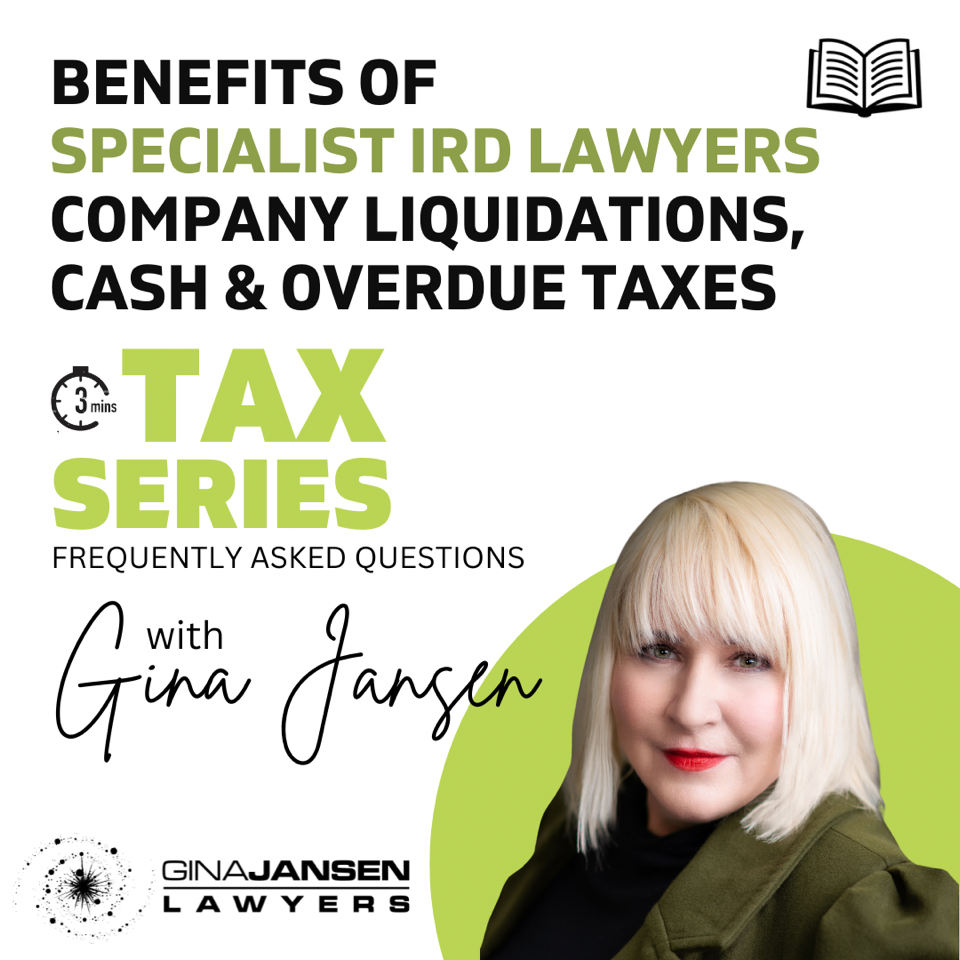Every New Zealand business, large or small, was significantly affected by the introduction of the Labour government enforced lockdowns as a response to the worldwide Covid-19 pandemic in March 2020.
The fallout continues for many. Many businesses did not survive, and have already succumbed to either voluntary liquidation or to Inland Revenue’s “full throttle” debt collection policy against deliberate or consistent taxpayer non-compliance, as announced in December 2024.
The National government further reinforced IRD’s tough stance by providing increased funding in the May 2025 Budget to boost IRD’s collection and compliance activities (i.e. an increase in its investigations, audits and debt recovery processes). As at June 2025, IRD-initiated liquidation applications are at their highest since pre-2020, with 1,510 out of 2,400 in the last two years being IRD’s. Commentators say the trend of IRD’s strong focus on collecting unpaid historical taxes will continue well into 2026 and beyond.
What Does Insolvent Mean?
For those taxpayers who trade as a company and fail to pay taxes, IRD becomes a creditor. One recovery process IRD can use is section 241 of the Companies Act 1993: a creditor application to commence liquidation proceedings in the High Court against a deemed insolvent company.
Section 4 of the Companies Act requires a company to be solvent. The solvency test has two limbs:
The liquidity limb assesses whether a company can meet its financial obligations as they become due, i.e. it has enough cash or readily available assets to pay its bills and debts on time, including taxes as and when they fall due.
The balance sheet limb examines the company’s overall financial health by comparing assets and liabilities, including shareholder drawings and intercompany loans by directors.
Where IRD have served a statutory demand on a company, and the company fails to meet the demand, the company is deemed insolvent under the solvency test, which paves the way for IRD to file a section 241 creditor wind-up application and appoint a liquidator of IRD’s choice.
Under the many robust laws contained in the Tax Administration Act 1994, directors may also face personal and criminal liability for the non-payment of taxes, particularly GST and PAYE, in certain circumstances.
What if I Accept or Use Cash in My Business?
Inland Revenue have excellent data collection systems, including notices to banks about suspicious transactions, other businesses filing documents in support of their own tax returns, or through the audit processes under the Tax Administration Act.
Cash does leave a trail as it needs to be spent or banked somewhere. Cash is used to pay staff and/or suppliers to avoid the income, PAYE and KiwiSaver tax laws.
Without a taxpayer’s knowledge, IRD can demand documents be provided to them from third parties, including other businesses’ invoices, who can be criminally prosecuted if they don’t. IRD also receives a tremendous amount of anonymous “tip-off” information about those using cash. IRD states its sources are often “diligent New Zealanders” annoyed at those persons not paying their fair share into the tax base, or disgruntled staff, customers or even ex-partners.
Where an investigation is commenced, IRD will already have some information, including very obvious and public statements made on online community noticeboards to, for example, advertise an Airbnb or seek casual staff.
At this point, and to avoid unexpected and nasty repercussions, a voluntary disclosure is well advisable as it will likely be less costly than any backdated shortfall penalties on the resulting shortfall tax. Shortfall penalties range from 25% to 150%, depending on whether IRD considers the behaviour was:
reasonable care
an unacceptable tax position
gross carelessness
adopting an abusive tax position
or tax evasion
In some instances, IRD can criminally prosecute taxpayers for tax evasion, with imprisonment up to five years and/or a fine of up to $50,000.00 per charge.
How Do I Negotiate with IRD?
Gina Jansen Lawyers are a specialist tax dispute law firm with 25 years’ experience working with taxpayers and Inland Revenue, including criminal and civil legal proceedings in the Courts, and negotiating voluntary disclosures and repayment settlements that achieve win/win outcomes for both the taxpayer and IRD.
With our help, taxes get paid and relief is provided so that a business can keep trading. It is crucial to everyone and the New Zealand economy that taxes are paid. However, we know exactly what the IRD laws and policy allow for, and what/how to achieve a win/win outcome for everyone.
It is however crucial that directors and taxpayers with tax debt seek immediate legal advice so that the range of available legal options are able to be used to negotiate with. While IRD may be slow to react sometimes, this does not mean they’ve forgotten about your tax debt.
With the severe financial and emotional pain caused by penalties and interest that accrue at significant rates, it is vital to seek specialist legal advice quickly.











